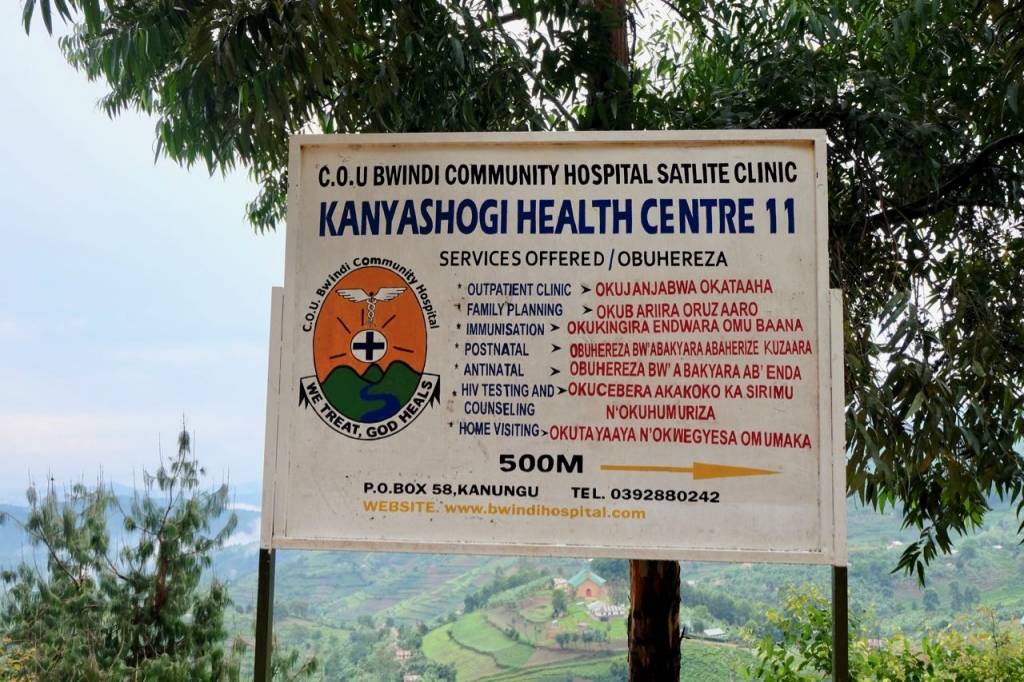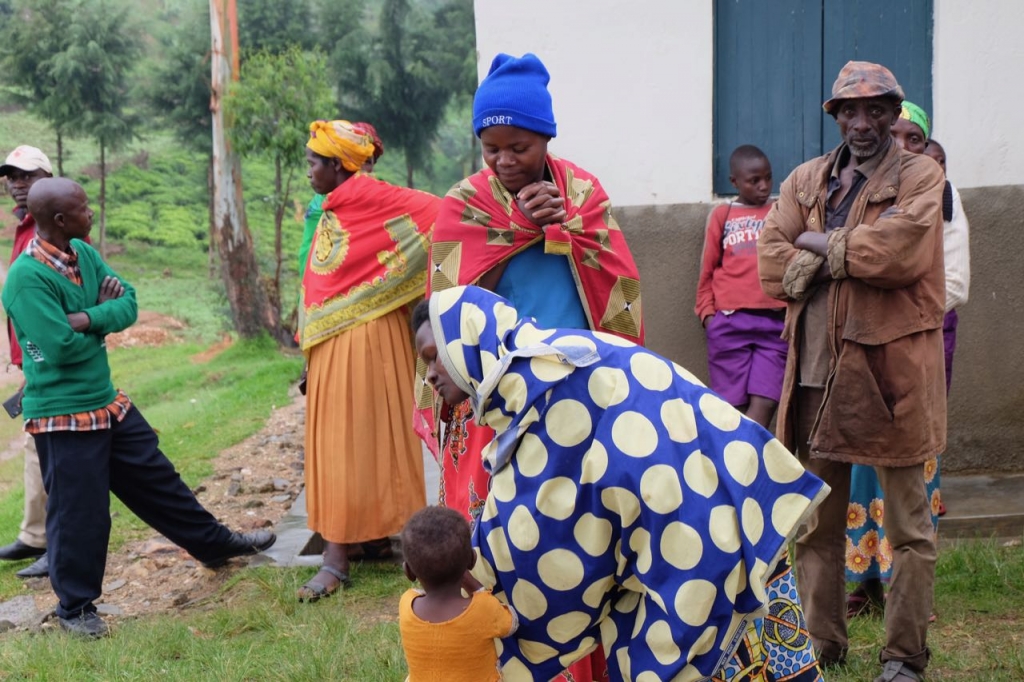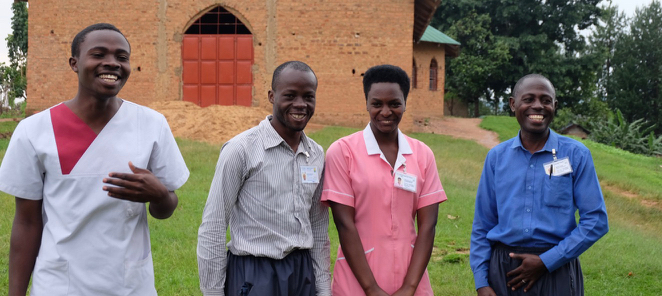Taking services to those in the community
Bwindi Community Hospital has been providing care for people with mental illness since 2012. We were invited to visit in 2013 and JF has been working with them since then. One of the things that has impressed us about the hospital is that it’s vision extends to the community “A healthy and productive community free from preventable disease and with excellent health services accessible to all.”
At Bwindi, they don’t just care for those who come to the hospital, as it is in some hospitals, but they are reaching out into the community to seek to enable everyone to be healthy and productive. This is a true public health approach.

The population around Bwindi are mainly poor subsistence farmers. Some are able to sell tea to the local factories, and the tourists coming to see the gorillas in the forest bring in some money. But in general, there is little cash in the local economy. People live on what they grow or sell in the market. Raising enough money for school or hospital fees is almost always a challenge.
The mental health team, under the leadership of Kuule Yusuf, have been working out how to take mental health care to people who can’t get to hospital, for whatever reason. Public transport is limited by the bad roads and the fact the hospital is literally at the end of the road, so there is no through traffic. There is little money available to pay for transport to clinic or hospital.
There are 17 parishes for the population of around 70,000 and these were used as the basis of the new service. Initially a monthly clinic was set up in each parish. This was enabled by funding from Jamie’s Fund which provided a motor bike and protective gear, and also paid for extra staff. This has meant staff spent quite a bit of time in community, staying out in two peripheral centres, when it was too far to travel back home each night, particularly when the roads are very muddy. The result of the increased work in the community, the number of people attending clinics at least twice has increased from 288 to 693 per year
However, this model of care was dependent on staff from the hospital going out. Kuule wanted the care to be available all the time, not just when staff were visiting. Kuule asked JF to fund an mhGAP rollout workshop. He trained staff from each of the health centres in the basics of diagnosis and treatment of mental illnesses.

Kuule is completing an evaluation of the service, which we expect will be published. This shows that the numbers attending clinics at least twice for mental illness have increased again to 839, since the training of the staff in the health centres. This is very encouraging.
It has also show two issues which they are now working to address. One is that only a few of the health centres are doing most of the work in mental health. Some of staff who were trained have been moved to new postings, which means their expertise is lost to that community, others have not really engaged – sometime due to a lack of the appropriate medication. The second issue is that about 40% of people attending a mental health clinic only attend once. This needs further review to understand why this is and if it is appropriate.
Those in mental health leadership in the Ministry of Health in Kampala are very interested in this model of getting mental health care out into the community, as it could be replicated in other areas at relatively low cost.
All credit to Kuule and his team for the services they are providing.



